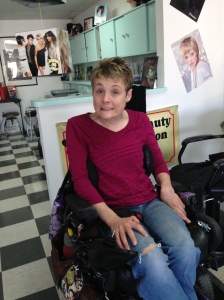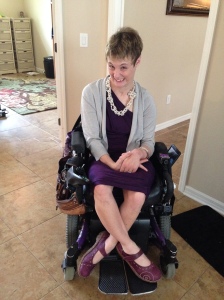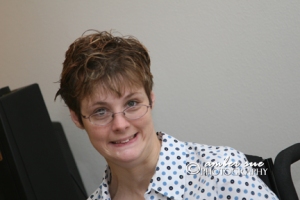
Photo Credit: Samantha Lynn Parker
My day begins with a gaze at a photograph … a memory from a few years ago when I reunited with Nathan, a childhood friend and my soulmate who died last October, after losing touch for a decade. For a moment, my eyes close to remember Nathan’s laugh, eyes, and smile. Then reality sets in and I kiss Erie—the teddy bear Nathan gave me for Valentine’s Day—before putting him back by the photograph.
My days are filled with things to do—workouts, meetings, blog post writing, catching up with friends, and so on. So often, I think of Nathan and wish he were still here. One moment, a friend may complain about her husband, while I secretly wish I could still bicker with Nathan. Take me back to when we argued all day, and I would be thrilled because it would mean one more day with him. Another moment I may have to make a decision without him, and I will be overwhelmed and wish desperately he would be here to listen. Later, I will just miss his smiling eyes and wish I could look into them again.
When news broke out about the release of the film Me Before You[i] and its theme concerning the assisted suicide of a paralyzed man, I had to pause.. I am always one looking for a way to learn how others think and react to situations. Perhaps the disabled community could learn about the inner workings of the suicidal mind. How do people decide to throw away their life? What sends people over the edge? Why is assisted suicide so appealing to some?
Many people are upset the movie portraying the disabled community in such a depressing light when most of us live normal lives. We go to college, earn degrees and masters, and have careers. We get married, have families, and sometimes get divorced. We live the human experience.
Amber Lee Wesely, a friend who has cerebral palsy like me, saw it and was disgusted with its portrayal of a rich man upset about not getting his way and giving up. My thoughts immediately turned to Nathan—how he fought to stay alive for most of his thirty-two years. There is no way I could sit through a movie romanticizing assisted suicide, not when Nathan and so many others in the disabled community fought to live.
Then there was a mass shooting on June 12, 2016, at an Orlando LGBT nightclub; forty-nine people were killed, and fifty-three were injured. Two days after the shooting The New York Times reported:
Of the 44 victims brought to the hospital, nine died within minutes of arriving, Dr. Michael L. Cheatham, a trauma surgeon at the center, said. Of the remaining 35, eight have gone home and 27 were still hospitalized on Tuesday. Six of those 27 are in critical condition, in the intensive care unit. Five others are in guarded condition, and 16 are stable.
Out of the thirty-five injured, there are bound to be those who are newly paralyzed or quadriplegic. Their new disability will be a constant reminder of that horrific night. With the LGBT community’s suicide rate already higher than the national average, the movie Me Before You might end up giving these newly injured individuals a stronger push toward taking their life. This movie tells individuals who become paralyzed or quadriplegic that they have a rightful option to die, because their life will be more difficult and provide less opportunities to make their dreams come true.
The truth of the matter is that people who are disabled, especially those paralyzed or quadriplegic, have a lot of opportunities to live life. They are able to play wheelchair softball, basketball, and rugby. There are adapted tricycles for those with these disabilities. After each Olympics Games, there is the Paralympics Games. At the summer games, these individuals complete in archery, boccia, cycling, powerlifting, rowing, sailing, equestrian sports, table tennis, swimming, sitting volleyball, wheelchair basketball, wheelchair fencing, wheelchair rugby, wheelchair tennis, and more. At the winter games, individuals complete in alpine skiing, biathlon, cross-country skiing, ice sledge hockey, and wheelchair curling. Even if you are paralyzed or quadriplegic, you can still complete in sports on a grand stage.
If you are not athletic, there are many things you can still do as an individual who is paralyzed or quadriplegic. Christopher Reeve is an actor famous for his role as Superman. After his horse-riding accident in 1995, Reeve became a quadriplegic but still continued to work in the movie industry as a director. Reeve also became an activist, serving as the Chairman of the American Paralysis Association and the Vice Chairman of the National Organization on Disability. Reeve also cofounded the Christopher and Dana Reeve Foundation and the Reeve-Irvine Research Center, which researched spinal cord injuries and provided grants to individuals who were injured. Reeve wrote two books, Still Me (an autobiography) and Nothing is Impossible: Reflections on a New Life (a book on his views and life experiences). Even as a quadriplegic, Reeve led a fulfilling life.[ii]
Some people have made the argument that assisted suicide is a choice people who are disabled or ill have. People have a choice to live or die. But although those with disabilities do have to grieve some losses, there is so much more to life than giving up and ending it. God gives each individual the gift of life and purpose. If you become disabled later in life, you may question your purpose in the world, but it does not mean God cannot use you anymore. Your purpose has changed—or maybe been redirected. Maybe before becoming disabled you were headed in the wrong direction. Maybe without your disability you could not achieve your full potential. Why would Reeve work so hard to raise awareness and funding for research if life as a quadriplegic was not worth living? As a quadriplegic, Reeve continued to make a difference in the world. I believe my disability, cerebral palsy, has given me a unique perspective. It makes me slow down and allows me to think and reflect on life.
Some people fight to live to meet their grandchildren, and some fight to matter in this world, while others have suffered the terrible loss of burying their loved ones. By contrast, Hollywood decided to produce a movie on the “loving merits” of assisted suicide, even when one of their own, Reeve, fought hard to live and to find a cure for spinal cord injuries.
For me, I think of Nathan. He did not choose or want to die. He fought like hell to live as long as he could. He smiled every day and loved with his whole heart. He shared the kingdom of God with everyone who he met. Nathan always chose life.
For these many reasons, I will not watch Me Before You; I am living loss it portrays and my loved one didn’t have a choice. It’s not entertainment; it the loss of a real person. Like so many others in the disabled community, I have buried my best friend and soul mate and was given a guardian angel far too soon. I and my fellow friends with disabilities know the taste of death, have stood at our peers’ graves far too young, and hold onto their memories. There is nothing romantic about assisted suicide or death.
My days end much like they begin: a gaze at the photograph of Nathan and as I take Erie to bed with me. I survived another day without Nathan’s physical presence. The only comfort I have is knowing he is my guardian angel and continues to protect me in my weakest moments. One day, I will see Nathan again in the kingdom of God, but until then I share his love, wisdom, and memory with everyone I meet. For this reason, I continue to actively choose to live the human experience. I choose life.
[i] Me Before You is a movie based on the novel by Jo Jo Moyes. The storyline follows the unexpected relationship between a small town Englishwoman and the wealthy, paralyzed Londoner. The Englishwoman becomes the man’s caretaker, and their relationship blossoms from there.
[ii] “Christopher Reeve: Actor, Director, and Activist,” Christopher and Dana Reeve Foundation, https://www.christopherreeve.org/about-us/christopher-and-dana/christopher-reeve.










 Cerebral Palsy often times gives a person a guilt complex for needing help to do the things she wants and needs to do. The guilt complex can drive a person into depression and make her withdraw from her family and friends. It takes a strong network of family and friends to get a person from being trapped by the guilt complex.
Cerebral Palsy often times gives a person a guilt complex for needing help to do the things she wants and needs to do. The guilt complex can drive a person into depression and make her withdraw from her family and friends. It takes a strong network of family and friends to get a person from being trapped by the guilt complex.

